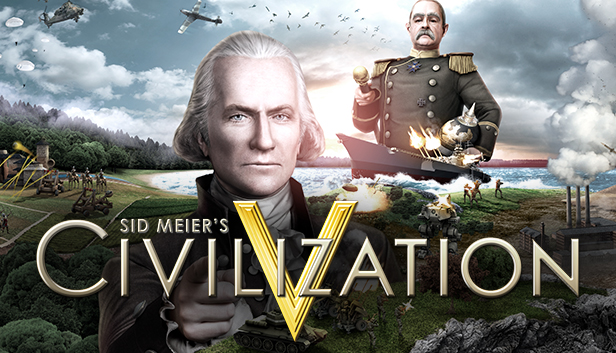
Sid Meier’s Civilization V
Prior to the recent release of the seventh installment, Civilization V was probably the most controversial title in the series, and it’s understandable why. The previous release was about as good as any game could get while working within the existing framework, and the attempted solution here was to reinvent major elements of that framework. Most obviously, Civ V uses a hexagonal grid instead of a quadrilateral one, and units are no longer allowed to occupy the same space simultaneously. Optimal combat strategy in previous titles was to stack the tallest tower of units you could onto one space and slide it over to the place you want to invade, so this is an almost unqualified improvement. The implementation wasn’t perfect, however. The frequency with which units require new orders because their path is now blocked is a headache that brings back memories of the annoying way zones of control worked in early Civ games. Additionally, there was no reason the restriction had to apply to non-combat units.
The other alterations span the entire spectrum of quality. At the positive end, the science, culture, and luxury systems have been overhauled to prevent one having outsize importance over the others, and there are significant penalties for expanding too quickly – both features that greatly diversify what would be considered ideal play. The AI is now oddly passive and inadept at the new combat system, which, on the one hand, may be refreshing compared the cutthroat environment of past games, but it’s also gone a little too far in the other direction. Government policy adoption is now tied to cultural output and functions like an alternative tech tree, which makes no logical sense, but it’s effective as a game mechanic. Lastly, diplomacy options have been pared down, to the point where a diplomatic victory is now just an economic victory in disguise. This is to say nothing of the systems that have been straight-up removed, most notably espionage and religion.
Despite all of these changes, this is still undeniably a Civilization game, with all of the addicting sense of progression and ever-increasing complexity that entails. It’s also the best the series has ever looked up to this point, and it has one of the better interfaces, behind only IV. And honestly, the combat is improved so drastically that it might be worth a recommendation on the strength of that alone. I just wish Firaxis had exercised more quality control in its redesign choices, as they seem to have been made totally arbitrarily.